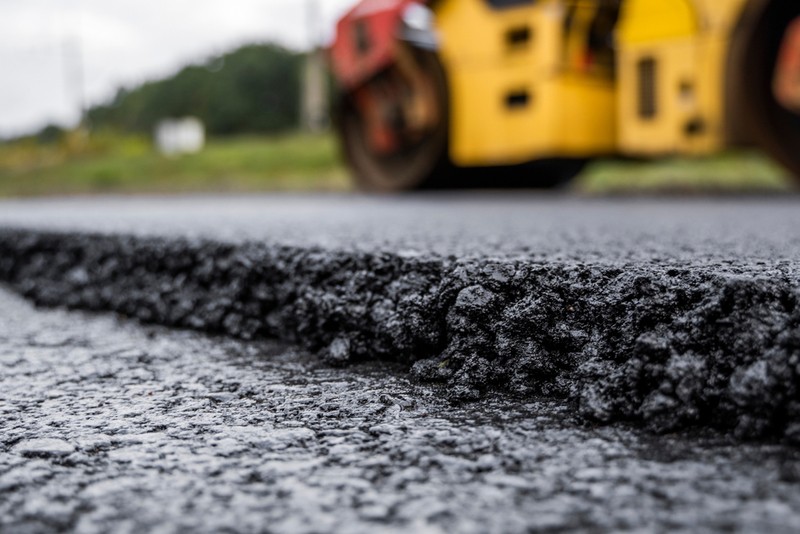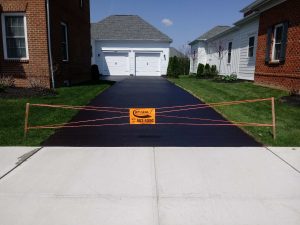Seal in High Quality: Professional Solutions for Asphalt Repair and Sealing
Seal in High Quality: Professional Solutions for Asphalt Repair and Sealing
Blog Article
Cold Mix Asphalt Vs. Hot Mix Asphalt: Which Is Right for You?

Structure Distinctions
Cold mix asphalt is generated by emulsifying the asphalt binder with water and an emulsifying representative prior to blending it with accumulation. The warm mix asphalt manufacturing procedure entails heating the accumulation and asphalt binder independently prior to incorporating them at the asphalt plant.
Furthermore, cold mix asphalt has a tendency to be less dense and extra flexible than warm mix asphalt. This versatility makes it much better matched for areas with higher degrees of activity, such as driveways or roads with rush hour. In comparison, warm mix asphalt is known for its high longevity and resistance to rutting and breaking, making it a favored choice for highways and high-traffic roadways where longevity is crucial.
Setup Process Variations
The process of setting up cool mix and hot mix asphalt exhibits remarkable variations in their treatments and demands. Cold mix asphalt, being a much more flexible product, can be used directly from the bag or container onto the gap or damaged location. It needs minimal preparation job, such as cleaning up the location and condensing the cold blend with hand tools. This makes it a convenient alternative for temporary and fast fixes. In comparison, warm mix asphalt necessitates a more elaborate installation procedure. It entails heating up the blend to high temperatures before laying it down on an effectively ready base. The prep work includes compacting the base, applying a tack layer, and using heavy machinery like pavers and compactors for a smooth and long lasting finish. As a result of the heating demands, warm mix asphalt installations are generally executed by specialists with specific equipment, making sure a much more irreversible and structurally sound outcome.
Toughness and Long Life Variables
When considering asphalt alternatives, longevity and durability are important elements to review for enduring pavement efficiency. Hot mix asphalt (HMA) is recognized for its outstanding toughness and longevity.
In regards to durability, HMA typically outmatches CMA because of its superior stamina and resistance residential properties. HMA pavements have a longer solution life, requiring much less frequent repair services and maintenance, which can equate to cost savings in the lengthy run. Furthermore, HMA sidewalks are much more conveniently customizable to fulfill particular task requirements, additionally enhancing their longevity.
Expense Factors To Consider
Thinking about the financial ramifications is an important element when evaluating the option in between hot mix asphalt (HMA) and chilly mix asphalt (CMA) for sidewalk projects. While the preliminary price of hot mix asphalt is normally higher than that of cold mix asphalt, HMA commonly gives a more economical remedy over time because of its premium sturdiness and long life. HMA is recognized for its ability to endure heavy web traffic lots and rough weather conditions, decreasing the requirement for constant fixings and upkeep. On the other hand, cold mix asphalt is more affordable upfront but may require more frequent patching and resurfacing, leading to higher maintenance costs over time.
Along with material prices, it's vital to think about the costs connected with installation and maintenance when comparing HMA and CMA. HMA generally requires customized equipment and competent labor for proper installment, which can affect overall task expenses. Conversely, CMA Bonuses is less complicated to collaborate with and can frequently be used using simpler strategies, potentially decreasing setup expenses. Eventually, the decision between HMA and CMA should consider not just the first expense yet likewise the lasting financial effects to identify one of the most affordable alternative for the particular sidewalk project. read review
Environmental Influence Comparison
Comparison of the environmental impacts between warm mix asphalt (HMA) and cool mix asphalt (CMA) discloses distinctive distinctions in sustainability methods. HMA production needs high temperature levels, leading to raised power usage and greenhouse gas discharges.
Additionally, the use of CMA often entails recycling existing asphalt sidewalk, promoting resource preservation and lowering the amount of waste sent out to garbage dumps. By deciding for CMA over HMA, road construction jobs can contribute favorably to environmental conservation initiatives.
Final Thought
In verdict, the option in between cold mix asphalt (CMA) and hot mix asphalt (HMA) relies on various variables such as composition, setup procedure, resilience, durability, price, and environmental effect. asphalt repair. While CMA provides a affordable and fast remedy for minor repair work, HMA makes sure premium resilience and durability for hefty website traffic locations. Consider these factors thoroughly to figure out which kind of asphalt is the appropriate click this selection for your paving requires

Considering the monetary ramifications is a crucial aspect when reviewing the option in between hot mix asphalt (HMA) and chilly mix asphalt (CMA) for pavement projects. While the initial cost of hot mix asphalt is typically higher than that of chilly mix asphalt, HMA usually offers a much more cost-efficient solution in the long run due to its remarkable longevity and longevity. asphalt patch repair.Contrast of the ecological impacts between hot mix asphalt (HMA) and chilly mix asphalt (CMA) discloses distinct differences in sustainability methods.In verdict, the choice in between chilly mix asphalt (CMA) and warm mix asphalt (HMA) depends on numerous factors such as structure, installment procedure, sturdiness, durability, price, and ecological influence
Report this page